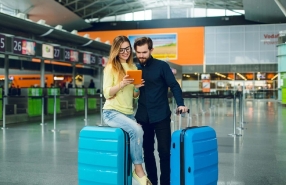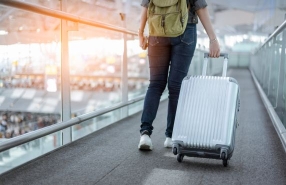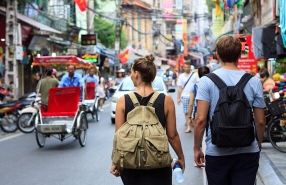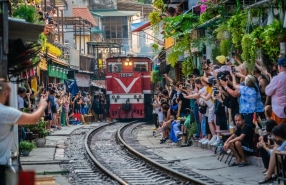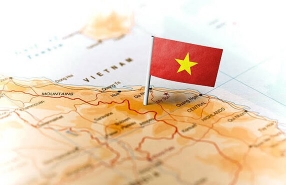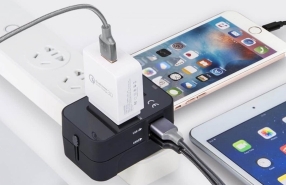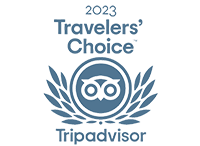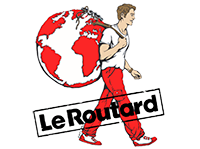Is It Possible To Travel To Vietnam With A One-Way Ticket?

Traveling to Vietnam with a one-way ticket can feel like a journey of freedom and adventure. You can decide how long to stay in Vietnam and where to go next. However, it comes with challenges, such as the requirement to show a return ticket at the airport, which can complicate your plans and lead to boarding denial. This complete guide provides you with all the essential information to successfully navigate your trip to Vietnam with a one-way ticket, avoiding hassles and fully enjoying your adventure.
Table of Contents
- I. What problems might you face when traveling to Vietnam with a one-way ticket?
- II. Consequences of traveling to Vietnam with a one-way ticket
- III. What to do if you’re asked for a return ticket?
- IV. Can I travel to Vietnam with a one-way ticket?
- V. Traveling to Vietnam with a one-way ticket: Solutions to avoid refusals
I. What problems might you face when traveling to Vietnam with a one-way ticket?
The main concern is the uncertainty about the purpose of your trip. When traveling with a one-way ticket and deviating from the traditional travel plan, you may face skepticism from airport staff (airlines and customs). Many countries require proof that you will leave their territory after your visa expires (such as a return ticket) to prevent illegal stays or overstaying your allowed period. However, checks are completely random, and not all passengers are consistently questioned or asked for a return ticket during their journey.
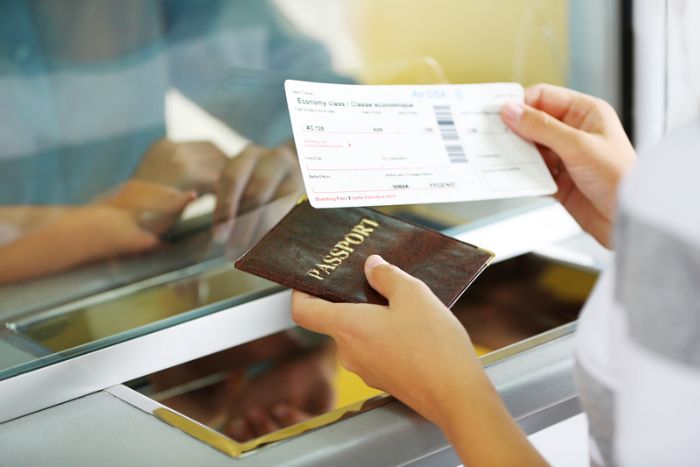
Customs agents typically request a return ticket during passport control and entry/exit stamping. You may be asked questions like: What is the purpose of your trip to Vietnam, how long do you plan to stay, and what is your return date?
Additionally, airlines also check if you have a return ticket during check-in. If you are denied entry to Vietnam, the airline is obligated to return you to your country at their expense. Therefore, check-in agents may sometimes require you to purchase a return ticket for your trip to Vietnam.
II. Consequences of traveling to Vietnam with a one-way ticket
Traveling to Vietnam with a one-way ticket can lead to several situations:
- Refusal of boarding: This is the most common scenario. At check-in, the airline may deny you boarding.
- Immediate expulsion: In the worst case, upon arrival and during border control, you might be sent back immediately on the next available flight.
- Requirement to purchase a return ticket: Upon arrival, you may be allowed entry if you buy a return ticket on the spot during the border check.
III. What to do if you’re asked for a return ticket?
When traveling to Vietnam with a one-way ticket, it’s best to avoid raising any suspicions. To prevent complications, follow these recommendations: avoid making jokes, adhere to all rules, do not mention any intention to extend your stay, and, most importantly, avoid giving any suspicious impressions.
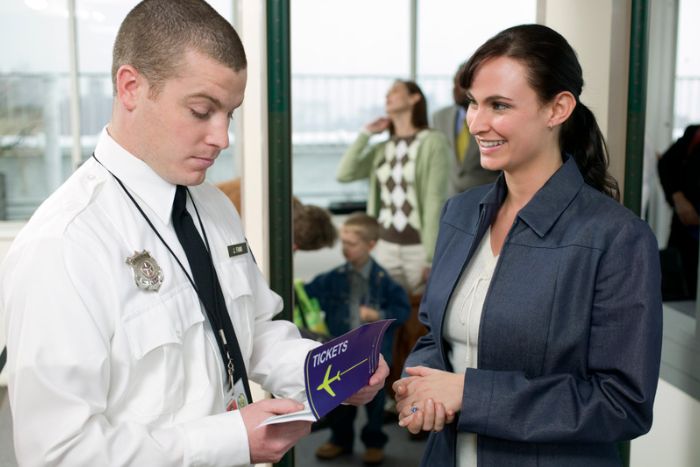
If asked for a return ticket for your trip to Vietnam, here's what you can do:
- At check-in: Be prepared to provide credible answers. If needed, present options like purchasing a refundable ticket or a temporary reservation using a smartphone with internet access.
- At customs: Do not lie about your return ticket. Follow the previous recommendations and explain that you plan to leave the country by another means, such as bus or train, and provide necessary details. Show your previous visas and any flight tickets you might have.
If you are threatened with deportation, offer to purchase a return ticket immediately on-site.
IV. Can I travel to Vietnam with a one-way ticket?
Traveling to Vietnam with a one-way ticket has its benefits, as Vietnam visa rules have been updated to allow citizens from all countries to apply for an e-visa. If you enter Vietnam with an e-visa, Vietnamese customs will not require you to present a return flight ticket.
However, some international airlines require a return ticket for boarding. Thus, complications often arise at the start of your journey to Vietnam with a one-way ticket.
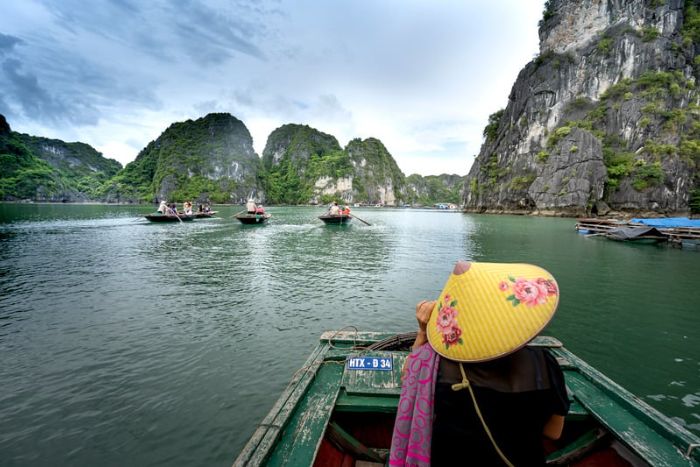
V. Traveling to Vietnam with a one-way ticket: Solutions to avoid refusals
1. Purchase a round-trip ticket from the start: Although it might seem contradictory if you seek flexibility and freedom, buying a round-trip ticket is often a practical solution. It is usually cheaper than two separate one-way tickets. If you have a detailed travel itinerary, consider purchasing a round-trip ticket to avoid potential issues.
2. Buy a cheap ticket for continuing flight: Many budget airlines offer very low prices for these tickets. You can select a subsequent destination and buy a cheaper ticket. If you don’t use it, you might lose only a small amount of money, about $50 to $100.
3. Opt for a refundable ticket: If you are willing to wait several weeks or months for a refund, a refundable ticket could be a good option. However, carefully review any potential fees and conditions, as unexpected charges can arise. Business class tickets are sometimes refundable without fees if canceled within a specific period, while economy class tickets may also be canceled with reduced fees.
4. Create a fake electronic ticket: Although this is an option, it is not recommended. It could make you appear suspicious to the airline and customs officials. You could create a fake ticket using tools like Photoshop or Canva to fill in return ticket details. Note that passenger information may be verified by airlines and customs.
5. Rent a return ticket: This is likely a safe and affordable solution. Several services now allow you to rent a return ticket for around $20. You just need to provide your personal information, the next destination, and departure date. You will then receive a return or continuation ticket. However, this is a fictitious ticket, similar to a flight reservation. Still, this service is generally well-reviewed by travelers who have used it.
6. Prepare evidence of extended stay: If you are traveling to Vietnam without a return ticket and plan to take a bus to Laos or Cambodia, you can try to convince customs or the airline by providing documents that prove you will leave the country, such as cross-border bus tickets or hotel reservations abroad. However, this may not always be accepted. Many strict customs agents or airlines require you to immediately purchase a return flight ticket.
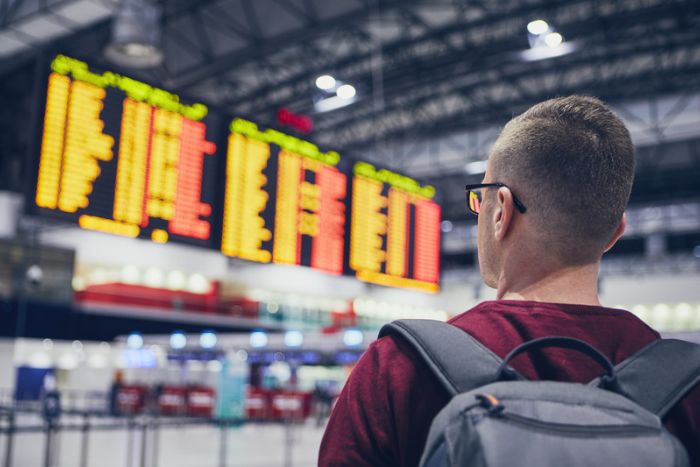
Traveling to Vietnam with a one-way ticket is often accepted, provided you have a visa and a clear purpose for entry. In particular, if you use the services of Autour Asia, a reputable travel agency in Vietnam, you won’t have to worry about entry formalities or extending your stay, thanks to a well-planned itinerary tailored to your needs.
First, ensure you have a valid passport for at least 6 months, a reservation of accommodation in Vietnam, and in other countries if you plan to travel further. If traveling with a travel agency, a PDF copy of the contract is also necessary. Vietnam travel insurance is recommended but not required by customs. Note that you only need to present your passport and departure ticket if customs officials do not request additional documents.
It’s simple: show customs officials your detailed itinerary, contact information, and accommodation details. As long as you can prove that you do not intend to overstay illegally, traveling to Vietnam with a one-way ticket should not be an issue.
Related travel guide
Other similar articles
CUSTOMIZABLE BY LOCAL EXPERTS
Personalized trip at the original price!
REFUND GUARANTEE
We believe in our work and promise to give you money back.
GOOD PRICE / QUALITY
95% satisfied more than expected!
24/7 LOCAL SUPPORT
We are always available online to provide assistance at any time.
Most read articles
Autour Asia is highly recommended on
Embracing the mission of "Satisfied more than expected" and providing authentic experiences, we have received numerous recommendations on reputable travel forums:











